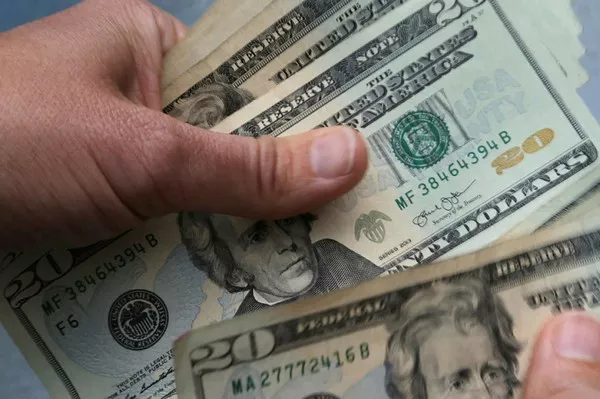A strong dollar is a term that signifies the relative value of the United States currency against other foreign currencies. In times of economic stability and confidence in the US economy, the value of the dollar rises, leading to its appreciation. While a strong dollar has several implications for various sectors of the economy, this article aims to delve into the specific beneficiaries of a robust greenback.
Exporters:
One of the primary beneficiaries of a strong dollar is the US exporters. A stronger dollar reduces the price of US goods and services in international markets, making them more affordable for foreign buyers. As a result, US exporters gain a competitive edge in the global market, potentially boosting their sales and revenues. Moreover, a strong dollar allows exporters to import raw materials and inputs at lower costs, further enhancing their profit margins.
Importers and Consumers:
While a strong dollar benefits exporters, it may seem counterintuitive for importers. However, a robust dollar makes imports more affordable for US consumers. When the value of the dollar rises, the cost of foreign goods and services decreases, leading to lower retail prices. Consequently, consumers enjoy access to a wider range of affordable products, enhancing their purchasing power and standard of living.
Travelers and Tourists:
Individuals planning trips abroad benefit from a strong dollar as well. When the US dollar is strong, travelers can exchange their currency for a higher amount of foreign currency, allowing them to get more value for their money while traveling. This makes international vacations and business trips more cost-effective, encouraging more people to explore the world beyond their borders.
Investors:
A robust dollar can be advantageous for investors, particularly those with international investments. When the dollar is strong, foreign assets’ value denominated in US dollars increases, leading to higher returns for American investors. Additionally, a strong dollar may attract foreign investors seeking stable and appreciating assets, further strengthening the US financial markets.
Borrowers and Debt Holders:
A strong dollar can have mixed implications for borrowers and debt holders. For those who have taken loans in foreign currencies, a strong dollar could lead to increased debt burden as it takes more US dollars to repay the same amount in foreign currency. On the other hand, for countries that hold significant foreign-denominated debt, a strong dollar reduces the cost of servicing that debt, which can help improve the country’s overall fiscal position.
Central Bank and Monetary Policy:
A strong dollar offers benefits to the US central bank, the Federal Reserve, in managing the country’s monetary policy. A robust dollar may allow the Federal Reserve to implement relatively looser monetary policies, as the strength of the currency can help contain inflationary pressures. Moreover, a strong dollar reinforces confidence in the US economy, attracting foreign investments and boosting capital inflows.
Oil and Commodity Importers:
As the world’s largest consumer of oil and many commodities, a strong dollar benefits US companies and industries reliant on imports. When the dollar is strong, the cost of purchasing commodities like oil, metals, and agricultural products denominated in foreign currencies becomes more affordable. This, in turn, helps to lower production costs and, potentially, consumer prices.
Conclusion:
A strong dollar has far-reaching implications for various sectors of the economy and different stakeholders. Exporters gain a competitive advantage in international markets, while importers and consumers benefit from affordable foreign goods. Travelers enjoy increased purchasing power abroad, investors find lucrative opportunities, and borrowers may face mixed outcomes. Additionally, a robust dollar supports the country’s fiscal position, aids the central bank in managing monetary policy, and benefits industries dependent on commodity imports.
However, it is essential to remember that a strong dollar may not always be favorable for all economic participants. Industries heavily reliant on exports may face challenges due to reduced competitiveness, and foreign debt holders may find their repayment obligations increasing. Nonetheless, a balanced approach to managing the strength of the dollar remains crucial for the overall health and stability of the US economy.


